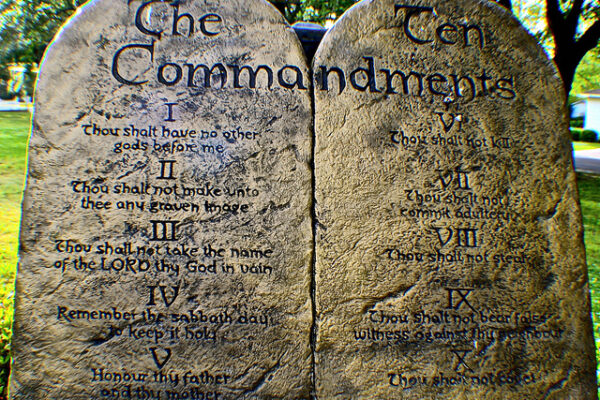Originally published on Alabama Political Reporter
Alabama is in the midst of what many have characterized as an opioid crisis. Our health care system was recently ranked 46th among all states. Our education system is even worse – 47th in the nation. Only South Carolina, Louisiana, and New Mexico are ranked lower. These are big, important issues, and redressing them should be at the forefront of our legislators’ agendas. Instead, our lawmakers are frittering away their time, resources, and influence to persuade voters to pass a constitutional amendment (Amendment 1) that somehow manages to be both useless and reckless at the same time.
Amendment 1 purports to allow public bodies, including public schools, to display the Ten Commandments on government property. But, there’s a huge catch that legislators are hoping voters won’t notice: a Ten Commandments display will only be allowed so long as it “complies with constitutional requirements.” In other words, the proposed amendment would create no new rights. Even if Amendment 1 passes, the government will still be prohibited from displaying the Ten Commandments if it would violate the U.S. Constitution. Although legislators have hidden this key language from voters by omitting it from the ballot, it will be included in Amendment 1.
If Amendment 1 would change nothing, what’s the harm in voting for it? The answer lies in another effort to hide the ball from voters. Voters won’t see this language on the ballot either, but Amendment 1 also requires that any display of the Ten Commandments be “intermingled with historical or educational items, or both, in a larger display within or on property owned or administrated by a public school or public body.” The Amendment suggests that this will be sufficient to meet “constitutional requirements.” Not so.
While the federal courts have upheld some older displays of the Ten Commandments in very specific circumstances, they also have viewed newer displays as constitutionally suspect. Courts often see these newer displays for what they are – an intentional effort to promote the religious doctrine of certain faiths and send a divisive message that those who don’t share these religious beliefs are second-class citizens. Indeed, although Amendment 1 specifically urges public schools to put up the Ten Commandments, no federal court has upheld their display in the school setting, regardless of the display’s nature or broader context.
In short, whenever the government puts up the Ten Commandments, it raises serious constitutional concerns. Amendment 1, if passed, will encourage public bodies to erect constitutionally questionable religious displays featuring the Ten Commandments and give officials false comfort that they will be safe from costly litigation as a result. They will not be. Although Amendment 1 promises that no public funds will be used to defend the constitutionality of the Amendment itself, local public bodies, such as school districts, will be forced to hire lawyers to defend lawsuits challenging specific Ten Commandments displays. And, should the plaintiffs prevail, the local public body and its taxpayers will be on the hook for the plaintiff’s attorneys’ fees, which could run easily into hundreds of thousands of dollars.
Religious expression should come from people’s hearts and faith – not stone monuments and wooden plaques erected on government property. Nevertheless, Alabama’s legislators will surely tout Amendment 1 when they go home to their districts, deflecting from the fact that they’re ignoring our real problems. While it might make a nice talking point for lawmakers, Amendment 1 is a wolf in sheep’s clothing for everyone else. Voters should reject this ill-conceived proposal and send a message to their representatives that this hollow gesture is not what Alabama needs. What we need is for our representatives to get to work on the real issues affecting Alabamians.
Photo: "Ten Commandments Tablets" by George Bannister on Flickr, licensed under CC 2.0



